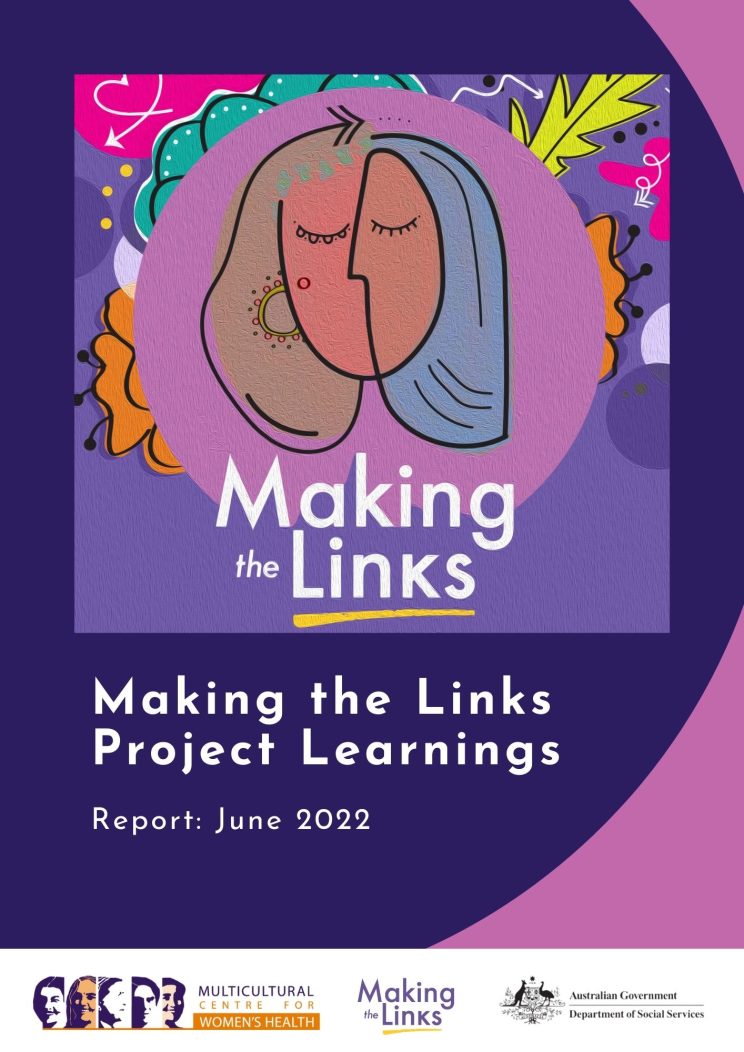MCWH is proud to release the Making the Links Project Learnings Report and Project Video.
The Making the Links Project, which aimed to better connect migrant and refugee women with family violence services in regional Victoria, has achieved fantastic outcomes in the past three years, including health education sessions and site visits for women’s groups, capacity building for service providers and a podcast series featuring interviews with community experts reflecting on best practice.
This Report aims to share the significant learnings of the project, including challenges, strategies and recommendations when working with multicultural communities in regional and rural areas, particularly in relation to creating better access to domestic and family violence and related services.
Read the Making the Links Project Learnings Report in PDF format
Read the Making the Links Project Learnings Report in Word format
All women living in rural and regional Australia face significant barriers to accessing services to support their health and wellbeing, including services that specifically relate to domestic and family violence and sexual assault. A 2017 report from the Australian Human Rights Commission found that gender inequalities are amplified in rural and regional communities, where “isolation gives women less support and fewer options to escape violence and discrimination”.
For migrant women who live in rural and regional Australia, intersecting inequalities and additional barriers to accessing services make it even more difficult for them to make the links to the support they need, especially if they are in Australia without family and community supports, if there are no resources available in their language and/or if they have insecure immigration status.
Making the Links aimed to address this issue and facilitate more effective communication and engagement between services and migrant women and their children who may be experiencing family violence in regional Victoria.
 We are very grateful for the experiences of the past three years and the expertise of the many service providers, advocates and migrant and refugee women we worked and consulted with across regional Victoria. We are also grateful to the Commonwealth Department of Social Services, who have funded this project through the Safer Pathways for Culturally and Linguistically Diverse Women Program.
We are very grateful for the experiences of the past three years and the expertise of the many service providers, advocates and migrant and refugee women we worked and consulted with across regional Victoria. We are also grateful to the Commonwealth Department of Social Services, who have funded this project through the Safer Pathways for Culturally and Linguistically Diverse Women Program.
